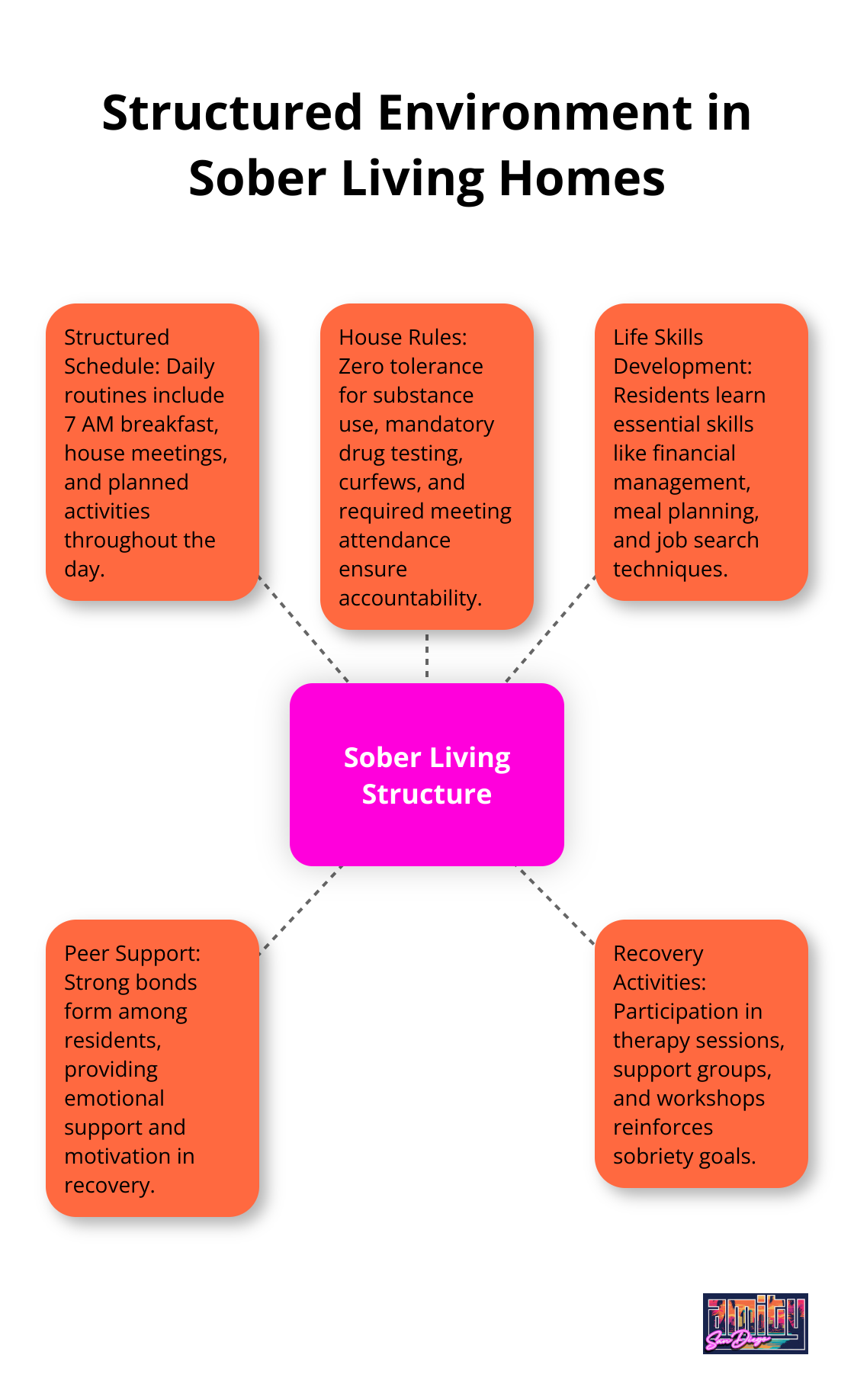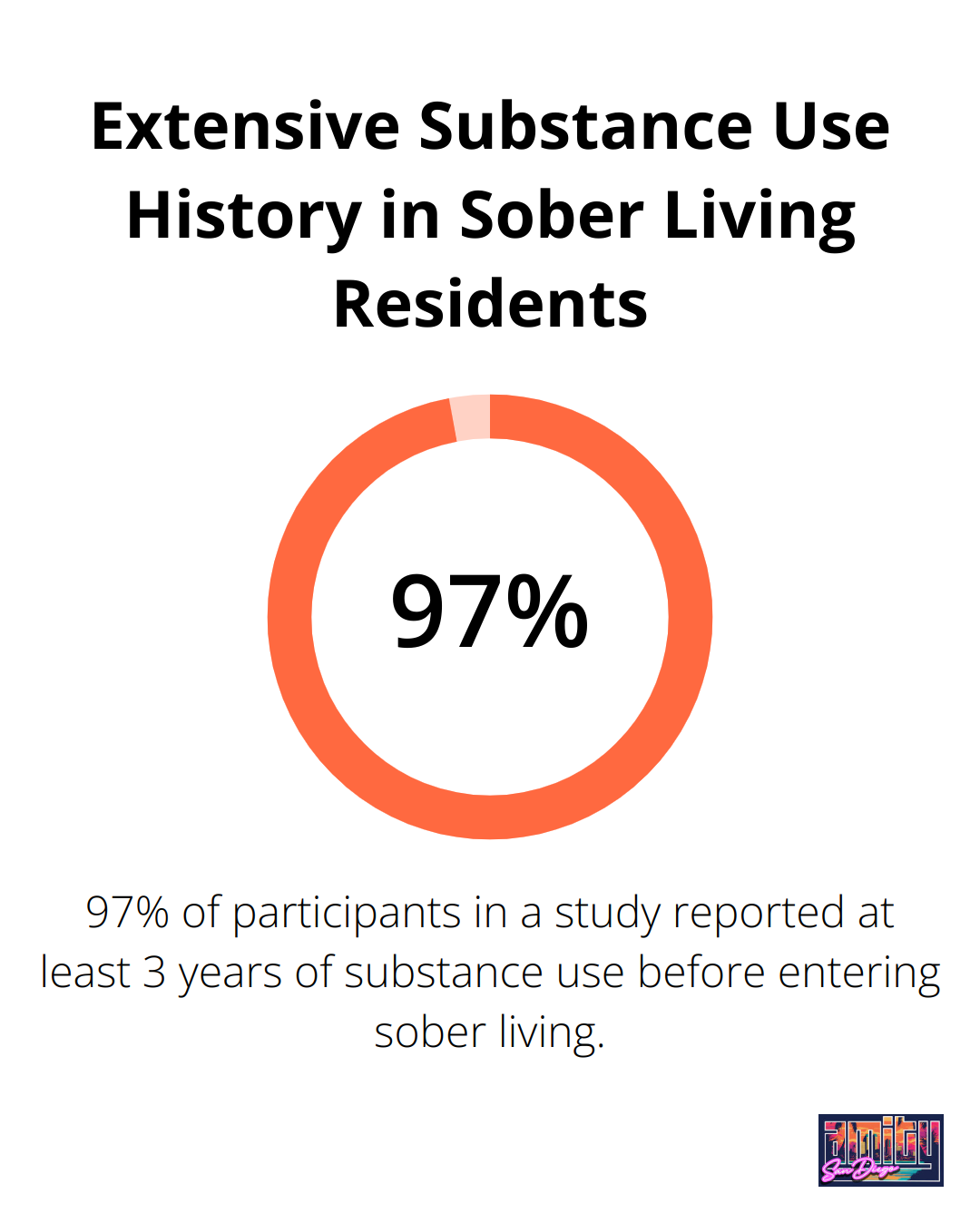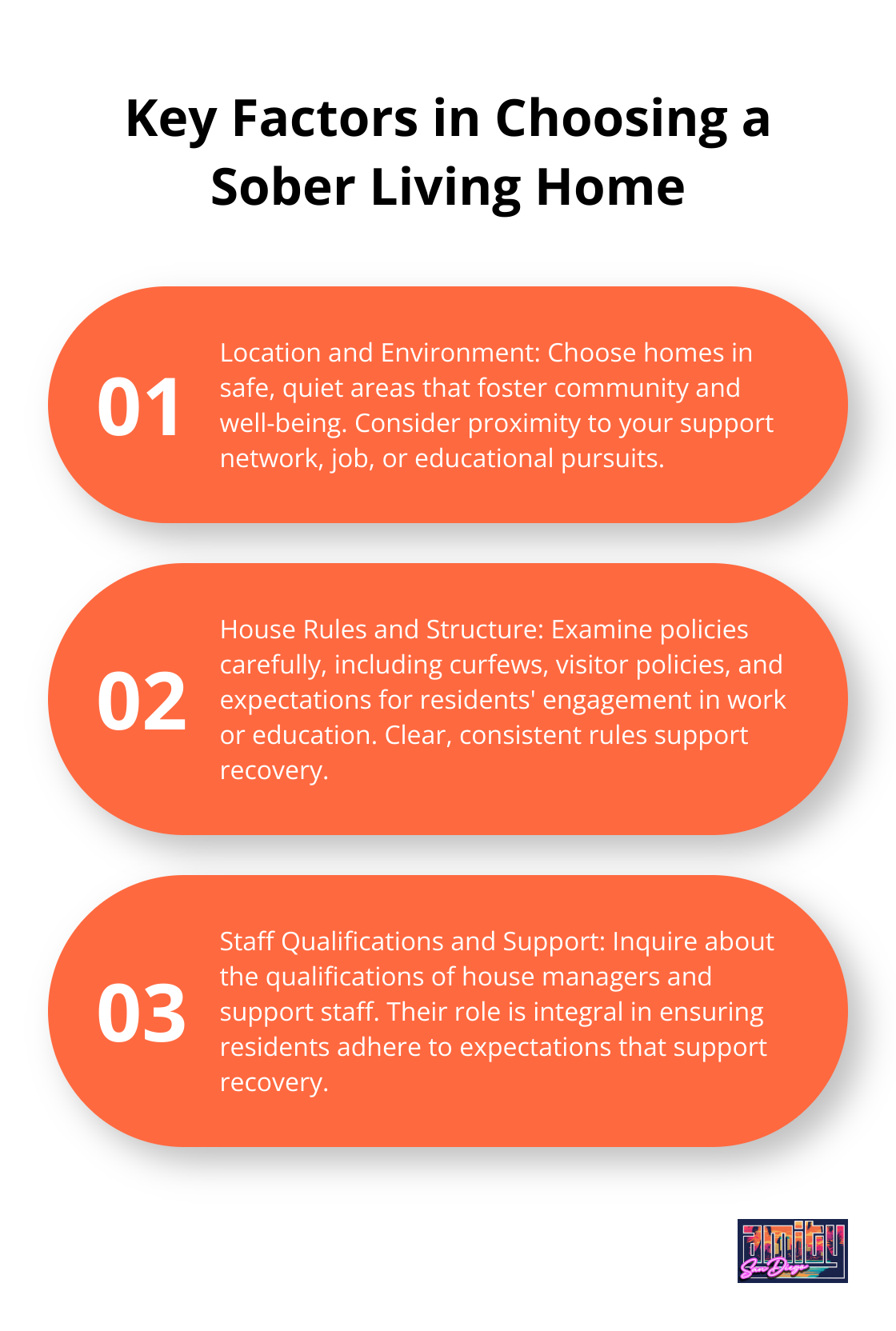At Amity San Diego, we’ve seen firsthand how sober living can be a game-changer for long-term recovery success.
Sober living homes provide a structured environment that bridges the gap between intensive treatment and independent living. These supportive communities offer a unique blend of freedom and accountability, crucial for building a solid foundation in sobriety.
In this post, we’ll explore the benefits of sober living and how it can significantly boost your chances of maintaining lasting recovery.
What Happens in Sober Living Homes?
A Day in the Life
Sober living homes provide structured environments that support individuals in their recovery journey. Residents typically start their day at 7 AM with a nutritious breakfast and house meeting. These meetings allow residents to share goals, concerns, and support each other. Throughout the day, residents engage in various activities:
- Job searching or working
- Attending therapy sessions or support group meetings
- Participating in life skills workshops
- Completing household chores
- Engaging in physical exercise or recreational activities
Rules That Foster Recovery
Sober living homes maintain strict rules to create a safe, supportive environment. Common regulations include:
- Zero tolerance for drug or alcohol use
- Mandatory drug testing
- Curfews (typically 10 PM on weeknights, 11 PM on weekends)
- Required attendance at house meetings and support groups
- Completion of assigned chores
- No overnight guests
These rules provide structure and accountability.

Building Life Skills
Sober living focuses on developing essential life skills. Residents learn:
- Financial management and budgeting
- Meal planning and cooking
- Job search and interview skills
- Conflict resolution and communication
- Time management
These skills are vital for successful independent living post-recovery.
The Power of Peer Support
One of the most valuable aspects of sober living is the peer support network. Residents form strong bonds with others who understand their struggles and triumphs. This camaraderie (often lasting well beyond the sober living experience) provides emotional support, accountability, and motivation.
The structure and support provided by sober living homes equip individuals with the skills and confidence needed for long-term success in sobriety. As we explore the benefits of sober living for recovery in the next section, we’ll see how these foundations translate into real-world success.
Why Sober Living Works: The Power of Structured Recovery
A Built-In Support Network
Isolation often triggers relapse. Sober living homes combat this issue by providing an instant community of peers who understand recovery challenges. A study in the Journal of Psychoactive Drugs revealed that 97% of participants reported at least 3 years of substance use at baseline, highlighting the extensive history of addiction among those seeking sober living environments.

Smooth Transition to Daily Life
The shift from intensive treatment to independent living can overwhelm many. Sober living offers a middle ground. Residents practice essential life skills (budgeting, job searching, household maintenance) while accessing support. This approach significantly lowers relapse risk during this vulnerable period.
Continuous Recovery Resources
Most sober living homes maintain connections with local treatment centers and recovery groups. This ensures residents have ongoing access to therapy, support meetings, and other vital resources. The National Institute on Drug Abuse reports that research on addiction science has led to the development of evidence-based methods that help people stop using drugs and resume productive lives.
Accountability Minimizes Relapse Risk
Regular drug testing, curfews, and house rules create a structure that reinforces sobriety. This external accountability proves essential in early recovery when willpower alone often falls short.
Skill-Building for Long-Term Success
Sober living environments focus on developing practical life skills. Residents learn to:
- Manage finances and create budgets
- Prepare nutritious meals
- Navigate job searches and interviews
- Resolve conflicts effectively
- Practice time management
These skills (often overlooked in traditional treatment settings) prove invaluable for maintaining long-term sobriety and building a fulfilling life in recovery.
Sober living homes offer a unique blend of independence and support that boosts long-term recovery success. The next section will guide you through the process of selecting the right sober living environment for your specific needs and goals.
Finding Your Ideal Sober Living Home
Location and Environment
The location of a sober living home impacts your recovery. Sober living homes provide residents independence while they learn and maintain life and coping skills necessary for long-term recovery. Pick homes in safe, quiet areas that foster community and well-being. Consider proximity to your support network, job, or educational pursuits.
House Rules and Structure
Examine house rules carefully. Effective sober living homes maintain clear, consistent policies. Having a set schedule minimizes the unpredictability that can cause stress and anxiety, both of which are potential relapse triggers. Ask about curfews, visitor policies, and expectations for residents’ engagement in work or education.
Staff Qualifications and Support
Inquire about the qualifications of house managers and support staff. Their role is integral in ensuring residents understand and adhere to the expectations set forth to support their recovery journey. Ask about on-site support availability and connections to local treatment resources (these can prove invaluable during challenging times).

Verify Credentials and Reputation
Ask for proof of licensing and accreditation. Check if the home is certified by reputable organizations. Read online reviews, but focus on patterns rather than isolated complaints. Contact your local health department or addiction services board for any reported issues or violations.
Red Flags to Watch For
Avoid homes that guarantee success or make unrealistic promises. Steer clear of facilities that appear overcrowded or poorly maintained. Be cautious of homes that pressure you to sign long-term contracts immediately or demand large upfront payments (these often indicate questionable practices).
Take your time in this selection process. Ask questions and choose a place that aligns with your recovery goals and values. If you feel unsure, reach out to addiction professionals or alumni for guidance. The right sober living environment will provide a solid foundation for your recovery journey.
Final Thoughts
Sober living homes provide essential support for long-term recovery. These environments offer structure, accountability, and community, which significantly increase the chances of maintaining sobriety. Sober living facilities help individuals build skills and confidence needed to thrive in substance-free lives.
We at Amity San Diego understand the challenges of addiction recovery. Our team offers personalized, evidence-based treatment programs to support your journey to lasting sobriety (combining medical expertise with compassionate care). We provide a safe and nurturing environment where healing can begin.
If you or a loved one struggles with addiction, help is available. Sober living can be a powerful tool in your recovery toolkit. Take the first step towards a healthier life today – reach out to learn more about our addiction treatment resources and how we can support your recovery journey.



